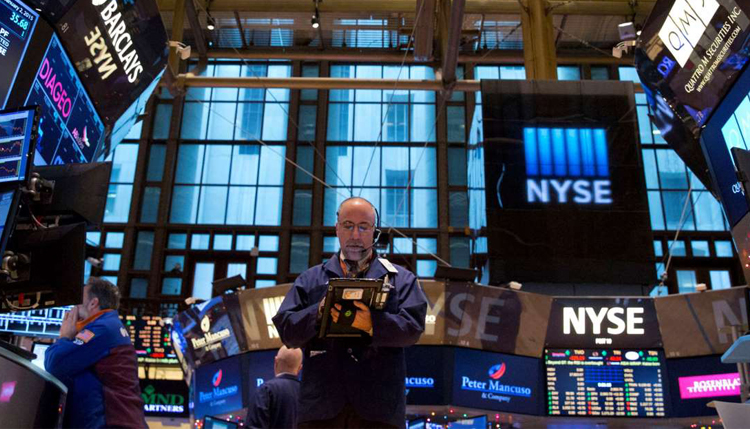U.S. stocks rose on Monday after President Donald Trump and Chinese President Xi Jinping agreed to a 90-day cease-fire in the trade war that weighed heavily on global stock markets for most of 2018. The Dow Jones Industrial Average rose 287.97 points to 25,826.43 while the S&P 500 gained 1.1 percent to close at 2,790.37.
The Nasdaq Composite rose 1.5 percent to end the day at 7,441.51. The consumer discretionary sector in the S&P 500 was the best performer, rising 2.5 percent. Amazon and Apple rose 4.9 percent and 3.5 percent, respectively.
Stocks came off their highs in midmorning trading, however. At its high of the day, the Dow had risen nearly 442 points.
“I don’t know why the market rallied on that news,” said Bruce Bittles, chief investment strategist at Baird. “Does it solve any of the long-term issues? I don’t think so. That’s one hurdle the market has to deal with.”
“I can see why the market would be happy that some of the pressure was taken off, but to surge this much?” Bittles said, adding China and the U.S. have yet to address issues like intellectual-property theft and non-tariff barriers of U.S. goods in China.
Futures on oil and copper jumped on hopes a possible new China-U.S. trade agreement would boost global economic growth.
The two leaders, who met for dinner on Saturday at the G-20 summit in Argentina, agreed to hold off on additional tariffs on each other’s goods at the start of the new year to allow for talks to continue. The U.S. agreed to leave tariffs on more than $200 billion worth of Chinese products at 10 percent.
If after 90 days the two countries are unable to reach an agreement, that rate will be raised to 25 percent, according to the White House. Trade negotiations will address forced technology transfer and intellectual property.
“The explicit delay in tariffs is on the positive end of expectations,” said Helen Qiao, China and Asia economist with Bank of America Lynch, in a note to clients. “In contrast to the fear, especially in Asia, that the hawks in US administration would make impossible demands, evidence of President Trump working towards a trade deal with China has emerged.”
Shares of General Motors, Ford and Tesla all jumped more than 1.8 percent after President Trump tweeted that China agreed to cut tariffs on U.S. cars sold into China.
Boeing jumped 3.8 percent. Caterpillar also rose 2.4 percent after Bank of America Merrill Lynch said the U.S.-China trade cease-fire presents a 20 percent upside for the stock. Chip stocks which have operations in China and a large amount of their sales in the country climbed with Micron and Nvidia each adding more than 3.5 percent.
Steel stocks also jumped. The VanEck Vectors Steel ETF (SLX) climbed 3.2 percent. Shares of U.S. Steel rose 3 percent and AK Steel climbed 6 percent.
‘Long way to go’
China agreed in Argentina to purchase a “substantial” but not-yet-determined amount of agricultural, energy, industrial and other U.S. products to reduce the trade balance between the two, according to the White House. China has put tariffs on $110 billion in U.S. goods.
Soybeans futures rose more than 1 percent on the news while Deere shares gains 4.7 percent.
“Obviously there is a long way to go here, but the pattern of previous [Trump] deals is playing out,” Qiao added.
The Dow rallied more than 5 percent last week in anticipation of a trade truce over the weekend between Xi and Trump. Shares of Caterpillar and Boeing, two companies with a lot riding on free trade with China, led the gains into the weekend.
Treasury Secretary Steven Mnuchin told CNBC’s “Squawk Box” on Monday he is hopeful the two nations can turn discussions between Trump and Xi into a concrete trade agreement.
The S&P 500 jumped 4.9 percent last week and is now up 4 percent for 2018. Fear of a full-blown trade war between the two countries helped send the benchmark into correction territory and into the red for the year last month.
“At this time, markets view the news as modestly positive for risk assets,” said Mark Haefele, chief investment officer at UBS Global Wealth Management, in a note. But “while President Trump described the bilateral meeting with China as ‘amazing and productive,’ we believe the rivalry between the US and China will not be easily overcome, especially over the issue of intellectual property and market access.”
“A breakdown of talks will remain a risk for markets and the global economy,” Haefele said.
Source: CNBC


